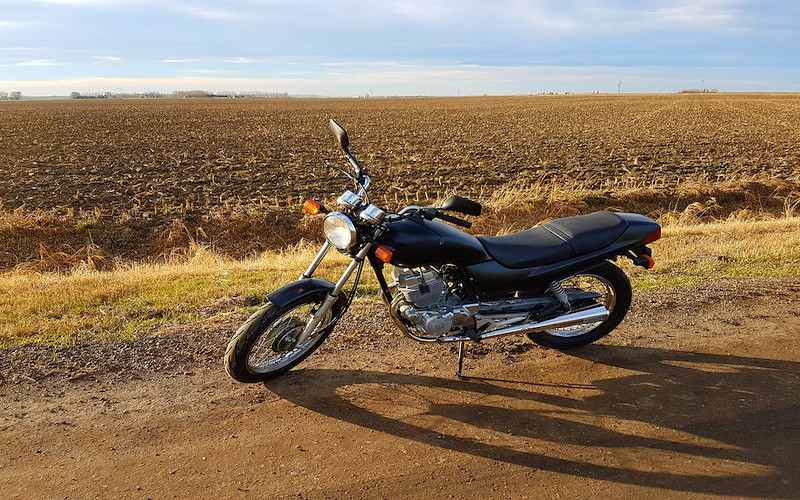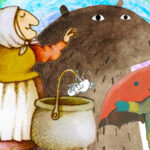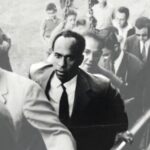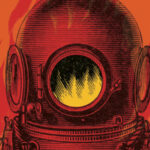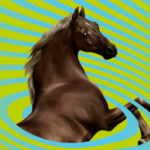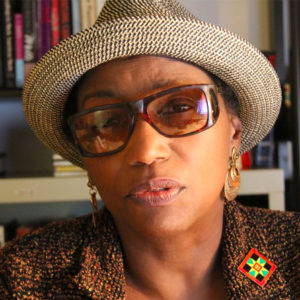On Learning to Ride a Motorcycle After Fifty
Kim McLarin on Why It's Never Too Late to Feel Dangerous and Accomplished
I am good at many things. I can grow vegetables, bake from scratch, cook for a family or a dinner party without embarrassing myself. I can read maps and navigate foreign cities and make minor household repairs. I can do a headstand and paint a room and tile a backsplash and operate a jackhammer. I’m an excellent driver, a fine teacher and a compelling public speaker. I can carry a tune and not embarrass myself on the dance floor. I can take direction, decipher texts and get out splinters. I’m a competent writer; I know how to get my point across.
I am good at many things, but, of course, it is possible I overestimate my abilities, à la the Dunning-Kruger Effect. It’s possible I think myself more capable than I am precisely because I lack the skills to accurately self-evaluate.
But I think it is more likely that I am objectively competent at the limited number of activities in which I engage not only because I’ve been doing them so long, but also because being competent is the reason I do them in the first place. Maybe even things I’ve learned later in life— like how to tile a backsplash or teach an online class or supervise other human beings —simply built upon what were already baseline competencies. Maybe I’ve kept learning and being successful at learning mostly because the growth has come in areas that already played to my strengths. Maybe everything new I’ve learned since I was young has played straight to my strengths.
For the first part of our lives, we learn unconsciously, at a breathtaking pace. By the age of ten I had learned at least a thousand things I did know at birth: how to walk and talk and eat with utensils, how to dress myself and tie my shoes and brush my teeth, how to read and write and listen, how to obey and also how to resist.
But at some point, learning becomes conscious. When that happens, to continue learning we must believe we need to learn, must feel ourselves lacking in some area, absent some skill or piece of knowledge which holds the potential to improve our life. This comes easily to children, who are told in constant word and deed that their primary job is to acquire the accumulated knowledge presumably held by members of the adult world. But the older we get the more difficult it is to see, and to acknowledge, our inadequacies.
When my son was contemplating a year abroad in high school, we went to an information meeting for the program he would attend. An alumnus of the program, a sweet-faced young man, was asked how hard it was to immerse oneself in a language you did not understand. “Not hard at all,” the young man said, “you just have to be willing to constantly look like an idiot.”
Learning is hard on the ego. Despite teaching for decades—or perhaps because of teaching for decades—I’d forgotten that.
It would certainly explain why I hated the motorcycle class.
The basic rider course, approved by the Commonwealth of Massachusetts, requires four hours of classroom learning and 10 hours of on-cycle training over two days. There are twelve of us in the class, including myself and my husband, who takes the class as moral support and also because he loves motorcycles. See above.
Leading us on this adventure are Sam the Scolder and another instructor named Zeke. Sam we suspect, from his authoritarian posturing and doughy body, of being a cop, but Zeke is shorter, more muscled and also far more chill. Less CHIPS, more Zen.
The course is scheduled to run eight hours Saturday and eight hours Sunday and conclude with written and skills tests. If I pass both, I’ll be allowed to stop in the motorcycle store on the way out and legally drive home a machine capable of reaching 200 miles per hour and 37 times more likely than an automobile to result in my death. Like many things in America, this is insane, but never mind.
Because it is raining, the class begins indoors, inside a massive warehouse stocked with Harleys and Ducatis and Indians (ugh on the name, ugh on the bike) and ATVs and snowmobiles and other expensive toys. We choose our bikes — everyone else has already chosen theirs, the instructor points out — and spend the first thirty or minutes getting familiar with the controls: here’s the throttle, here’s the clutch, here’s the brake. I make special note of the brake. We spend an eternity discussing when to use the choke. The answer, my husband will tell me later, is never, since most modern bikes don’t have one.
My Honda Nighthawk 250s is a good thirty years old and bears the scars of many a drop. Besides injury, dropping the bike is my biggest worry, one which intensifies when I realize I’m the only woman in the class. Dropping the bike gets you serious demerits. I am not going to be the Girl Who Dropped the Bike.
I am also the only Black person, though the class is otherwise diverse, surprisingly so. One guy’s from Russia, another from Italy; both are college students, which makes sense. There’s a man from India and another from somewhere in Central America. He is, he tells us, recently married. (“When I told my wife I wanted a motorcycle, she burst into tears.”)
The remaining students are, like my husband, white. One, a tall, neat, good-looking young man in his early thirties, listens to the introductions then says, in a voice straight out of The Departed, “Lotta accents in this class.”
“Yep,” I say. “Including yours.”
He stares at me a moment, then laughs. His name is Riley. Unlike Sam, he turns out to be a cop.
The youngest student is seventeen. Only three of us, including me and my husband, are old enough to remember a time before the internet or ovens that microwave. Being an elder or whatever we’re called and learning to ride a motorcycle is strange and not a little embarrassing, like showing up, dressed and grinning, at a BTKS concert, or crashing a prom.
Outside in the drizzle we start the bikes, fiddle around some more with the controls and then, astonishingly, begin to ride. The routine for the class is quickly established: Sam outlines a drill, Zeke demonstrates, we line up and try it ourselves, failing or succeeding in plain view. We practice basic skills — starting and stopping, shifting and stopping, using the clutch and finding the friction zone. Though I’ve driven a standard shift car for years, the friction zone on the bike eludes me, raising my frustration, which, in turn, makes my performance worse. Every drill I feel more like Chevy Chase playing Gerald Ford (you have to be a certain age to get the reference.) I drive too slow, stop too soon, go the wrong way around the marker. Finding neutral feels impossible; over and over I shift through and stall. Part of the problem is that the bike is too small and my boots, dug out of the closet and borrowed from one of my kids, too clunky and big, but in the moment I don’t make this connection. In the moment I feel incompetent.
The afternoon is easier. Sam departs, off to scold jaywalkers and people who leave leaves on their lawns. We retreat inside, to a cluttered classroom that smells faintly of stale fast food but at least is warm and dry. It’s Zeke’s turn to lead; his instruction method involves having us read portions of the textbook aloud then pausing to discuss. This is not innovative teaching but it gets the job done, the job being cramming enough information into our heads for us to pass the written test. When it’s my turn I read fluidly and answer questions with a snap. In a classroom I am hyper-competent. In a classroom, I am home.
The motorcycle textbook focuses mostly on ways to stay safe while riding: dress appropriately, remain visible, anticipate rather than react to the actions of others. Always have an escape path, or two. Know your risk offset and operate within it. Risk offset, explains Zeke, is the difference between the risks you take and the skills you possess. Low risk, high skills is the gold standard. High risk, high skills, okay. Low risk, low skills is reasonable, especially to begin. The person most likely to get into trouble riding a motorcycle is the person who takes high risks with a low skill set, risking their life on abilities insufficient to the task at hand.
Risk offset. The concept almost makes the entire grumpy day worthwhile.
Zeke is a gentle teacher, gentle in the way of men who have nothing to prove. He’s a veteran (“I got back on the bike when I came back from Afghanistan. My wife couldn’t say no,”) loving father (his daughter keeps calling because their guinea pig had died) and country boy who’s taken his share of spills and learned that what mattered on the road was not speed or noise or badassery or any other kind of macho cosplay. What matters is enjoying the ride and coming home.
“You may be right: that guy who cut you off may be an asshole,” Zeke says. “The question is: do you want to be right, or do you want to be alive?”
This reminds me of a question a therapist once asked me, one that changed my life. Do you want to be right, or do you want to be loved?
In class, everyone nods their heads as Zeke raises his eyebrows. The right answer to his question is obvious. But the honest answer, the answer I gave the therapist, the answer no one speaks aloud, is: Both.
Day Two we arrive twenty minutes early, bearing boxes of donuts and hot coffee to ward off the morning chill. The donuts are my husband’s idea: there is no quicker way to win friends and influence people than to offer deep-fried food. Later, as we drive the college students back to their train, they will tell us how Sam, who picked them up from the station that morning, spent the commute trashing us and wondering if we’d be late again. Instead, we stand and watch Sam hustle to finish setting up the course as the arriving students gleefully stuff their faces. When Sam sheepishly asks for a donut, my husband winks.
Day Two focuses on control of the bike: S-turns and U-turns and maneuvering. Also on tap are ways to get out of trouble on the road. As in life, Zeke tells us, the question is not whether trouble will come, but when. On a motorcycle, trouble comes often in the form of sudden obstacles. You’re riding down the road and a deer leaps from the bushes, or the school bus in front of you suddenly breaks or a board falls from the back of a truck. The choice, when faced with a sudden obstacle, is to either swerve, ride over or try to stop, and this is a choice best made ahead of time. Zeke gives us a scenario: you’re riding down a beautiful country lane when suddenly a ball rolls out of a driveway, followed, for all you know, by a child. What do you?
“Stop,” I say.
“That’s a lot of people’s instinct,” Zeke says. “But that instinct is usually wrong.”
When trouble comes in the form of a sudden obstacle you probably won’t have time to stop. Even if you do, the guy right behind you may not. The right choice, in this case, Zeke says, is probably to swerve into your escape lane, the one you’ve previously identified. The one you’ve kept at the back of your mind. Always have an escape lane.
We practice racing across the parking lot (racing being a relative term) and then swerving around a barrier, first to the right, then to the left, then to whichever side Zeke points at the last minute. We practice riding over boards and cutting tight corners. We practice riding fast down a long strip and coming to a hard stop on a line without losing the bike. The young men love it. They chatter happily as they wait their turn to perform, revving their motors to hear the sound. The one other older man smiles quietly, keeping mostly to himself. My husband, the star of the class, leads each exercise at the request of the instructors, too tall for his tiny bike but enjoying himself. Everybody but me is having a good time.
“Does she ever smile?” Sam asks my husband, though not in my hearing. Sam is an asshole but not an idiot.
After two hours of maneuvers, it’s time for the road test. My heart thumps and my palms, beneath the thin leather gloves I am wearing, sweat. Even in the moment I know this is ridiculous. I have no plans to actually get a motorcycle, no plans to take long rides on a summer day the way my husband does. If I fail the test, if I don’t get the license, my life will not change. Moreover, my husband told me the last time he took the course (at another school,) everyone in the class passed, including a woman who crashed her bike. These guys are in the business of putting people on the road, not keeping them off. I’m not even the worst person in the class; that would be a young, lanky guy wearing dress shoes and drugstore knit gloves who comes oh-so-close to dropping his bike. If I don’t pass the test it doesn’t matter one whit. Still, I want to do well. I want to appear competent, not for the people who I will never see again, not even for my husband, but for myself. Learning may slow as we age but the ego never relents.
When trouble comes in the form of a sudden obstacle you probably won’t have time to stop.I don’t do well. My turns go outside the lines and my swerves take me right into the back of the imaginary bus. I accelerate too slowly and brake far too soon and my feet touch the ground while I’m turning a slow figure eight. Even as I’m still testing I know that my performance is inadequate. There are only a certain number of points you can lose and it is certain that I have lost those points. I know that I have failed.
“Pass,” says Zeke. To everyone. The college students grin.
But I pull Zeke aside as the others hustle towards the classroom to take the written test. I don’t yet know I will not only achieve a perfect score on that assessment but will find myself racing to finish first, to leap up mere minutes after the test begins and hand the paper to Zeke with a flourish of victory—but I know , as if that know I will perform well on that assessment and I do, not only scoring 100 but finishing first, heart pounding, As the others hustle inside for the written test, I pull him aside. I didn’t pass, I insist. It doesn’t matter if I wasn’t the worst one in the class. It doesn’t matter if I was close enough. I don’t want a mercy D, I want the F I earned. I didn’t pass and I want him to say as much. I am not, it turns out, the kind of person who is good at everything she does. Only a person fairly good at acknowledging reality.
__________________________________
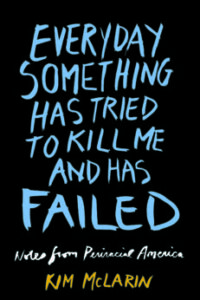
Excerpted from Everday Something Has Tried to Kill Me and Has Failed by Kim McLarin. Used with permission of the publisher, IG Publishing. Copyright 2023 by Kim McLarin.

